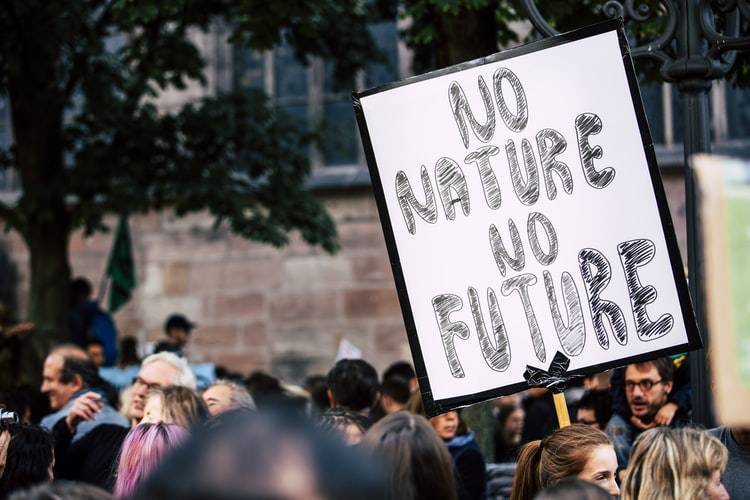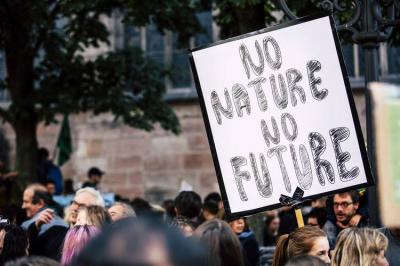Nearly a decade ago, the wealthiest countries in the world pledged to provide $100 billion annually to help developing nations reduce carbon pollution and adapt to devastating climate impacts. However, this promise has not been fulfilled, which could undermine the upcoming "COP26" summit in Glasgow, Scotland, starting in three weeks.
At the 2009 Copenhagen Climate Conference, rich countries committed to increasing their aid to southern nations to combat climate change to $100 billion annually by 2020, to assist with adaptation efforts and emission reductions. Yet, ten years later, these countries are still far from meeting this target, with assistance not exceeding $79.6 billion in 2019, according to the latest figures from the Organization for Economic Cooperation and Development (OECD) in September.
The United States announced it would double its aid, but this will not bridge the recorded gap. Canada and Germany are consulting to propose a financing plan ahead of "COP26" in Glasgow. Developed countries are primarily responsible for greenhouse gas emissions. British Prime Minister Boris Johnson, whose country is hosting the international conference, noted that the UK, as a pioneer of the industrial revolution based on fossil fuels, "was the first to release choking smoke that harmed nature's systems," adding: "We understand that developing countries look to us for help, and we must take on our responsibilities."
**"COP26 Stakes"**
Sonam P. Wangdi, chair of the group of the Least Developed Countries, stated regarding the Glasgow conference that the lack of funding "incurs human costs and affects livelihoods. Fulfilling this pledge made by developed countries a decade ago will be crucial for building trust and accelerating global responses to climate change."
Patricia Espinosa, UN climate chief, clarified on the sidelines of a preparatory meeting in Milan that success in Glasgow requires setting up "a program that reflects a fair balance" to gain acceptance from all parties. She added that "drawing a good horizon (for the $100 billion) will establish trust and allow us to progress on other issues." Alden Meyer from the E3G research group noted, "The southern countries may take a harder stance than in the past, and a reliable solidarity program will be a key factor for progress in negotiations."
Andreas Sieber from the Climate Action Network, which includes over 1,500 NGOs concerned with climate issues, shares the same analysis. He emphasized, "If COP26 wants to start on good foundations, it must demonstrate that developed countries will honor and exceed their promises."
**$100 Billion... Just?**
Many parties and experts consider that the $100 billion amount is no longer sufficient as the effects of warming accelerate, with rising natural disasters such as droughts, massive fires, hurricanes, and floods. This amount seems modest compared to the trillions spent on economic recovery plans after the COVID pandemic, which were often criticized for lacking substantial environmental measures.
A group of independent UN experts confirmed in December 2020 that "since the pandemic prompted such a swift and extensive response, the world can certainly find the will to act with the same mindset and urgency to address the climate crisis." These experts argue that "the $100 billion goal should be a starting point, not a ceiling."
Mohamed Nasheed, former president of the Maldives and ambassador to the Climate Vulnerable Forum representing a billion people in 48 countries, suggested expanding financing discussions to include sovereign debt. He explained in a recent briefing, "We are under pressure and may find ourselves without a country at the end of this. If we no longer exist, it will be difficult for us to pay our debts. Therefore, it makes sense for vulnerable countries to ask their creditors to restructure their debt... by replacing obligations with climate adaptation projects."
**Symbol of Inequality**
The $100 billion figure also reflects a broader discussion around "climate justice," which often encompasses inequality and climate globalization, potentially including "loss and damage" and possible financial responsibilities or the distribution of future emission reductions.
Countries like China and India, which generate significant emissions, argue they still need compensation for their developmental lag, compounded by a youth movement criticizing the inaction of ruling generations. Young Ugandan activist Vanessa Nakate (24 years old) summed up the situation by stating, "Those who bear the least responsibility for rising emissions are facing the worst phase of the climate crisis currently."




